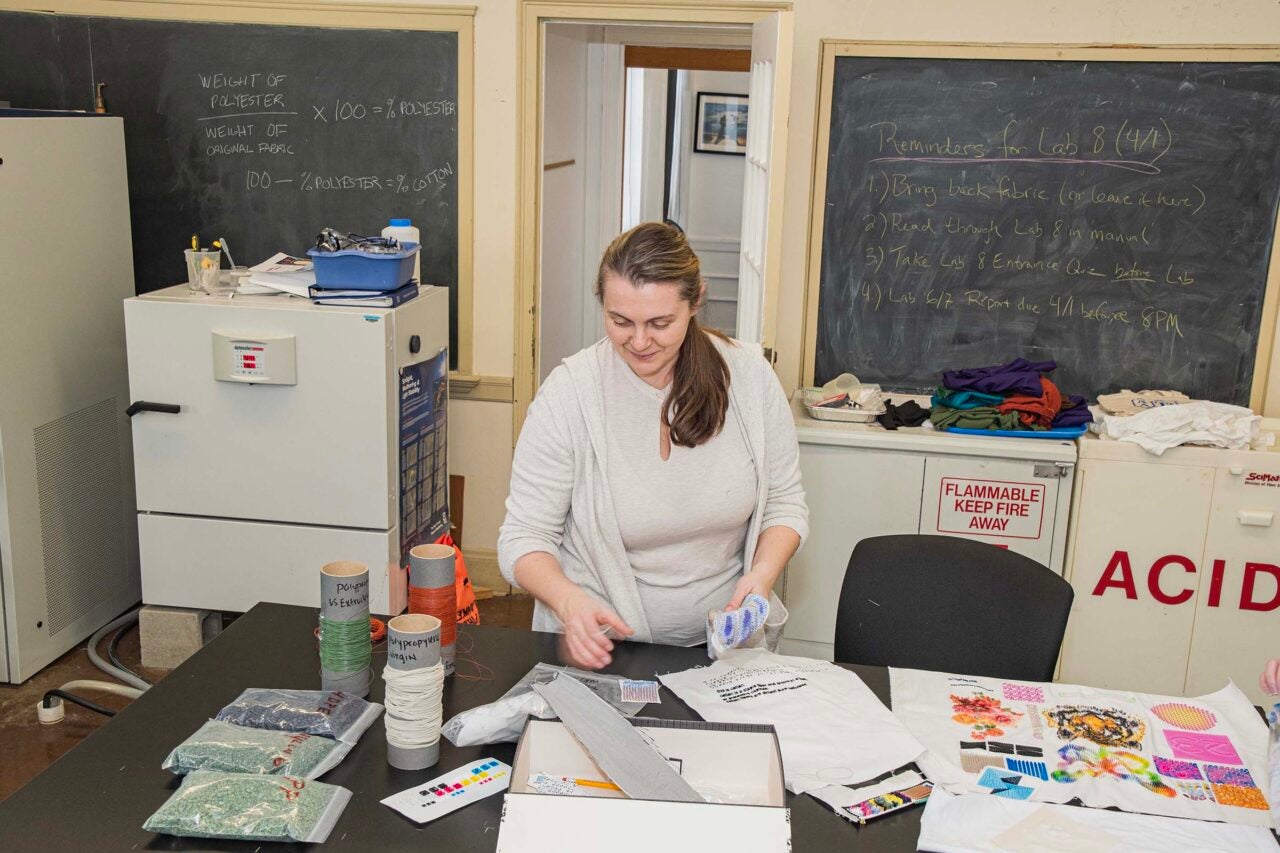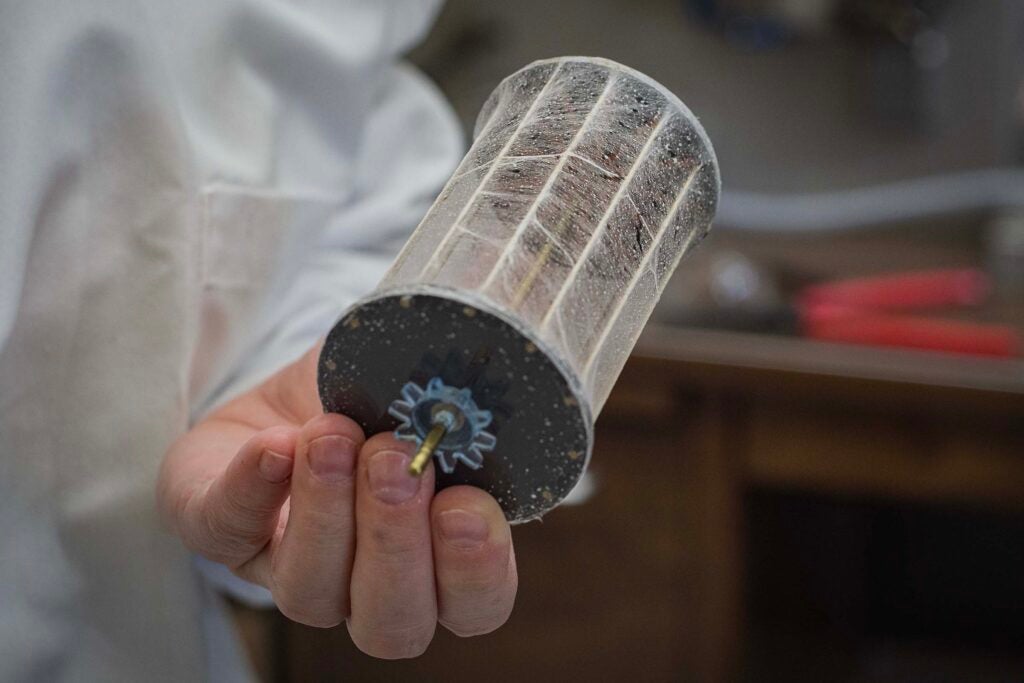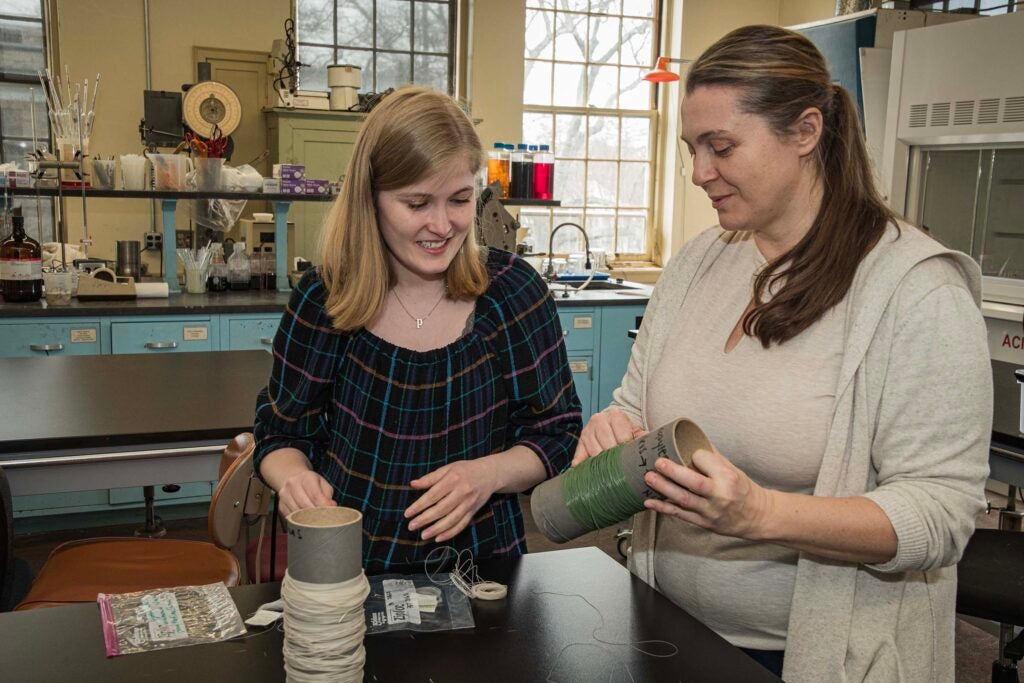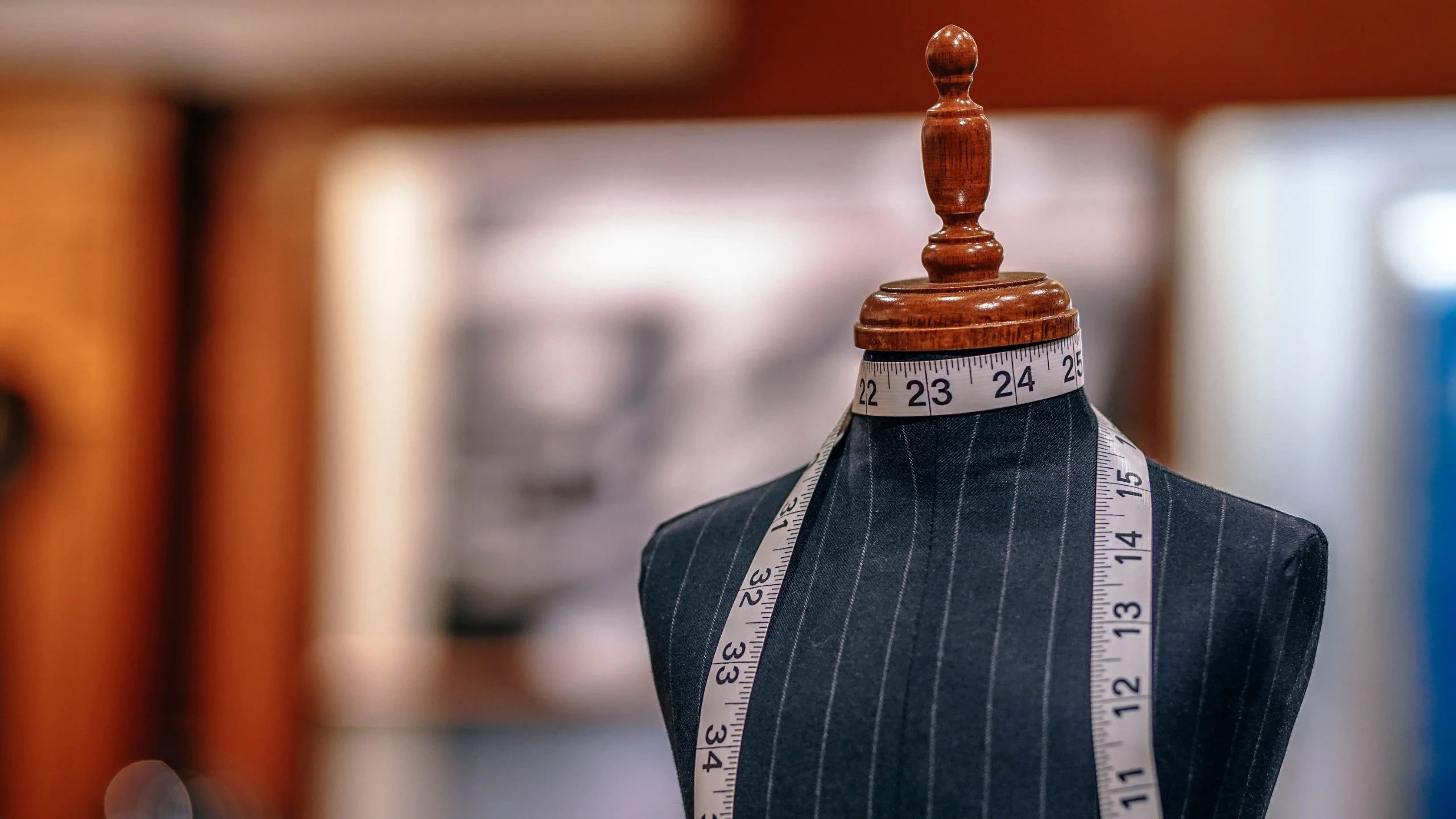
Izabela Ciesielska-Wrobel has received more than $1.1 million in funding in the United States and European Union for her projects, awarded permanent residence in the U.S. for her scientific skills and contributions. (URI Photos / Nora Lewis)
KINGSTON, R.I. – April 16, 2024 – A textile sciences professor at the University of Rhode Island who’s tested and developed fabric for use in space and other extreme conditions is now applying her talents to the burgeoning ocean plastics problem.
A new Faculty Fellow at URI, Izabela Ciesielska-Wrobel (of Wakefield) arrived at URI in 2021, drawn by what she calls “an environment filled with people who are passionate about conservation.”
Novel applications in materials science
“Science fascinates me because it allows me to accomplish goals that make lives easier, better, comfortable,” says Ciesielska-Wrobel.
Her novel work with textiles has been a focus for some time, dating from her tenure at Ghent University in Belgium, when she began working with protective materials.
The wide-ranging applications for her interests are finding a receptive audience with students in URI’s Textiles, Fashion Merchandising and Design (TMD) program, which includes a focus on sustainability, technology, and innovation.
“Izabela’s research areas and educational experiences are both intriguing and invaluable to our department and to the University,” says Ji Hye Kang, chair of the department.
Ciesielska-Wrobel is studying the conversion of plastic waste into filaments and fibers that are microscopic in size (0.01 mm and less in diameter) but could have a major economic impact as viable raw materials.

She’s worked on projects funded by the European Union, the U.S. Department of Defense and the U.S. Department of Energy. These experiences were eye-openers for her: “I learned a lot about the harm we’ve caused to our planet,” she says.
Ciesielska-Wrobel is comfortable putting textiles to work in extreme conditions such as space, combat or fire. She created an in-flight urination system for the U.S. Department of Health (the Easy Peezy), managed research into flame-resistant fabrics for Army uniforms, created new combat shirts for the defense department, and has created fabric that protects firefighters working in extreme conditions. She also wrote the book on ballistics protection, essentially showing how to build fabric that can stop a bullet.
Fashioning the future
Now at URI, she’s happy to have found a niche in the textiles program at the University.
“This is my kingdom,” she laughs, referring to the Textiles Lab on the upper floor of historic Quinn Hall. If not there, you might also find Ciesielska-Wrobel in the Launch Lab in the library running a new 3D knitting machine that lets students design their own textiles.
No one in Rhode Island has this kind of technology, she says.
Another machine quietly whirring near the lab entrance is treating an ancient piece of fabric from Egypt that is 2,000 years old according to carbon dating; Ciesielska-Wrobel is in the process of conserving it.
With a long understanding of fabric impact over time, Ciesielska-Wrobel would like to change habits and policies as she looks at plastic ocean waste, but also views it as a raw material to be harvested and put to use.
Students in the TMD program are looking for this kind of knowledge and skills, to connect fabric and textiles to social issues; they will need this kind of technical expertise after they hang up their graduation gowns.
Textile history

Raised in Lodz, Poland, Ciesielska-Wrobel grew up surrounded by fabric and textile factories, the area’s prevailing industry, drawing workers to looms instead of fields. Lodz is called the Manchester of eastern Europe, she notes.
“Textiles were the #1 industry there,” she says.
When a depression shuttered factories, Ciesielska-Wrobel’s forays into textile science were a way to see how the industry could change with the times. Eventually, she moved into environmental work and says she enjoys making sense of the interaction between fabric, fashion and the world.
Students today are aware of issues of which prior generations were (and are) not. They are coming to URI to be part of discussions about conservation in clothing and reducing microplastics in water. Ciesielska-Wrobel would like to see filters in washing machines that can scoop or sweep up microplastics before they get into waterways. That could happen, and Ciesielska-Wrobel says increasing public awareness will help.
She believes that legislation that motivates producers and consumers is the next step to effect change.
Ava Stanley, an Alfred J. Verrecchia Scholar* at the University, says she chose URI because she felt she could merge her love for design with an interest in environmental matters here. Stanley and Ciesielska-Wrobel have been talking about Stanley’s independent study on ocean plastic waste. Stanley’s work with ocean-harvested textiles will be showcased at the textiles program’s upcoming Spring Splash fashion show on April 20.
“Our world is in crisis,” Stanley says, “and garments are contributing to problems in ocean waters.”
She says her passion for the industry only expanded after taking Ciesielska-Wrobel’s textile science class.
“I loved it,” she says. “And then living here by the ocean, adding a sustainability minor just made sense. I’ve been able to make connections and am thankful for the experience I’ve had at URI.”
Today’s enviro-conscious young consumers, like Stanley, who favor Savers over Saks, are making their way to URI for classes with forward-looking faculty like Ciesielska-Wrobel in a historic program that offers value for a smartly priced degree. And the University is also preparing a new Gen Ed course, “The World of Plastics,” for new URI students to access this information, regardless of major.
“We have good students here,” Ciesielska-Wrobel says. “They’re conscious and conscientious.”
*The Alfred J. Verrecchia Scholars program was founded by Alfred J. Verrecchia ’67, M.B.A. ’72, Hon. ’04 as part of a $15 million gift during Big Ideas. Bold Plans. The Campaign for the University of Rhode Island.

